COPR is a collection of personal repositories for software that isn’t carried in Fedora. Some software doesn’t conform to standards that allow easy packaging. Or it may not meet other Fedora standards, despite being free and open source. COPR can offer these projects outside the Fedora set of packages. Software in COPR isn’t supported by Fedora infrastructure or signed by the project. However, it can be a neat way to try new or experimental software.
Here’s a set of new and interesting projects in COPR.
CryFS
CryFS is a cryptographic filesystem. It is designed for use with cloud storage, mainly Dropbox, although it works with other storage providers as well. CryFS encrypts not only the files in the filesystem, but also metadata, file sizes and directory structure.
Installation instructions
The repo currently provides CryFS for Fedora 28 and 29, and for EPEL 7. To install CryFS, use these commands:
sudo dnf copr enable fcsm/cryfs
sudo dnf install cryfs
Cheat
Cheat is a utility for viewing various cheatsheets in command-line, aiming to help remind usage of programs that are used only occasionally. For many Linux utilities, cheat provides cheatsheets containing condensed information from man pages, focusing mainly on the most used examples. In addition to the built-in cheatsheets, cheat allows you to edit the existing ones or creating new ones from scratch.
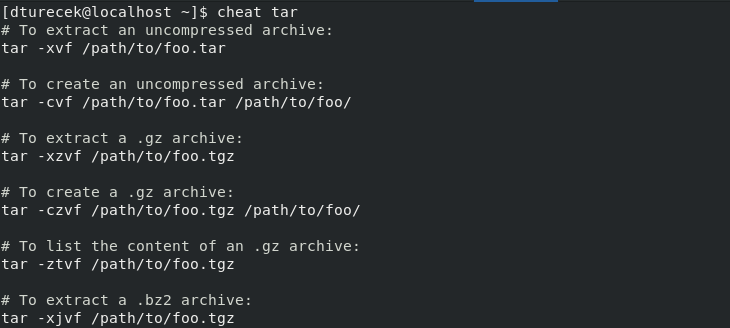
Installation instructions
The repo currently provides cheat for Fedora 28, 29 and Rawhide, and for EPEL 7. To install cheat, use these commands:
sudo dnf copr enable tkorbar/cheat
sudo dnf install cheat
Setconf
Setconf is a simple program for making changes in configuration files, serving as an alternative for sed. The only thing setconf does is that it finds the key in the specified file and changes its value. Setconf provides only a few options to change its behavior — for example, uncommenting the line that is being changed.
Installation instructions
The repo currently provides setconf for Fedora 27, 28 and 29. To install setconf, use these commands:
sudo dnf copr enable jamacku/setconf
sudo dnf install setconf
Reddit Terminal Viewer
Reddit Terminal Viewer, or rtv, is an interface for browsing Reddit from terminal. It provides the basic functionality of Reddit, so you can log in to your account, view subreddits, comment, upvote and discover new topics. Rtv currently doesn’t, however, support Reddit tags.
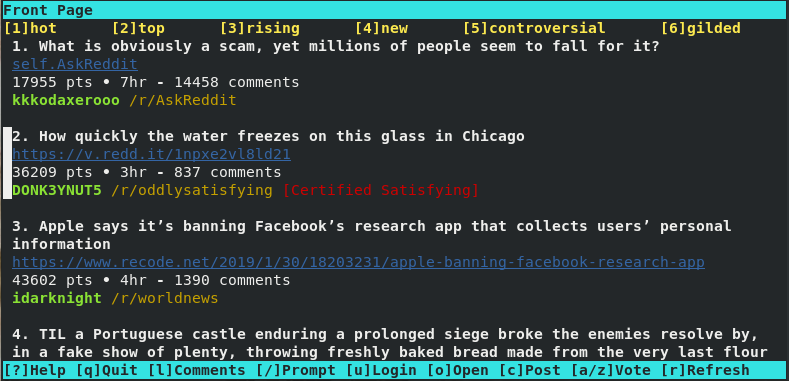
Installation instructions
The repo currently provides Reddit Terminal Viewer for Fedora 29 and Rawhide. To install Reddit Terminal Viewer, use these commands:
sudo dnf copr enable tc01/rtv
sudo dnf install rtv

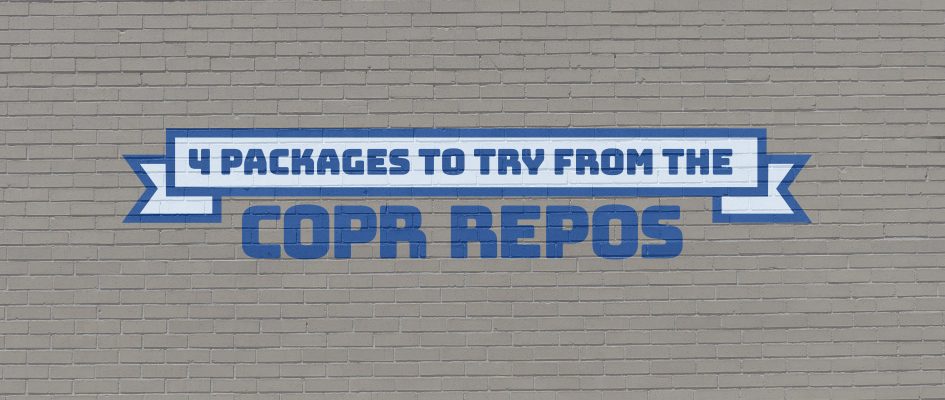
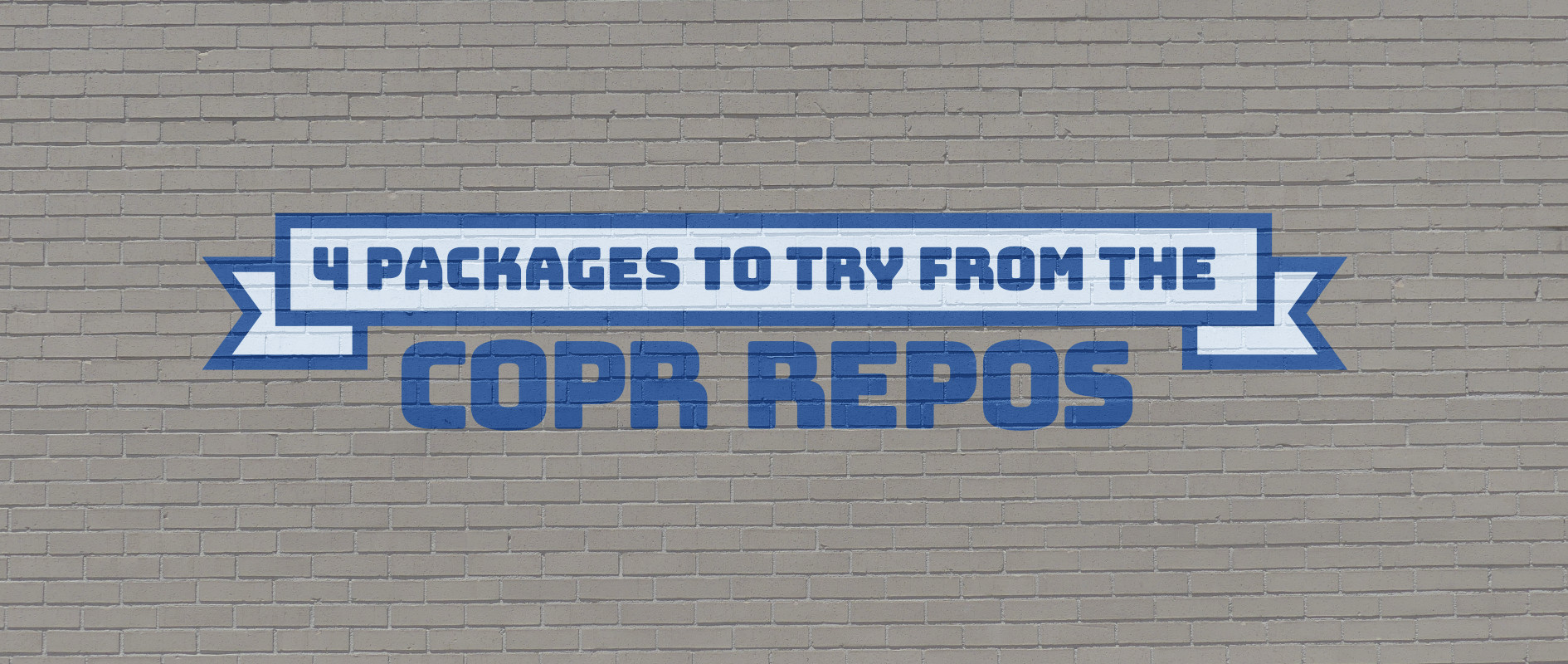
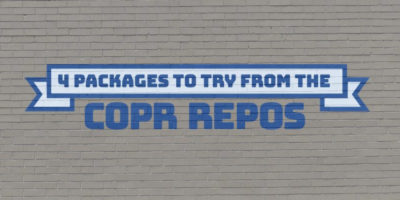
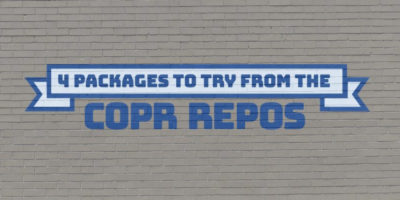

Andrei
Can’t really agree with the Cheat one as it’s easier to curl on http://cheat.sh/term-here. Pretty sure that’s what they use in that package as well.
Guus
Thank you for the tip! it is actually interesting to compare the two source repositories.
There are two github libraries: cheat/cheat (article) and chubin/cheat (curls version). I found both different authors and both using very different python programs and (with limited python knowledge) I found no links from one to the other.
In the ‘cheat/cheat’ github code I found the literal formulation of the cheats in the subdirectory ‘cheatsheets’.
In the ‘chubin/cheat’ github code I could find no reference to where the cheats come from.
But …. running both cheats in terminator in 2 side by side terminals, the output appears to be identical. Unless this has a link in common in the manpages, this is too much of a coincidence to be accidental.
About usage though, I would suspect that the following arguments apply:
cheat/cheat (article) provides local access to the cheats.
chubin/cheat (curl) provides remote access to the cheats.
So, if you are always connected, it really doesn’t matter which one you chose (the output appears to be the same). If you work offline as well, then the articles solution is the better as you always have access.
Guus
Would it be possible for all
packages to specify why it was not included in Fedora? I am usually interested in the reason and for encryption I am especially interested in what is holding Fedora back.
Baggypants
For all the things I put in copr, it’s just because I can’t be bothered becoming an official package manager. And given it’s lazyness that means I use copr to provide packages, then no, I’m not going to bother to write up why it’s not in the main repo either.
Guus
I get your response from the perspective of a copr provider. My question is aimed at Fedora (the writer of this article), for recommending them. Not at copr providers.
What is the reason for not including them in Fedora? Maybe the only reason is availability of a packager. Maybe it’s some other reason. But if the package has license issues I would want to know. If there are issues between the software and the system software, I would want to know.
I chose Fedora for a set of reasons, one of which is reliability, the other is guaranteed getting free software. So, getting a copr that Fedora recommends, shouldn’t introduce problems in these respects. I just want to know why.